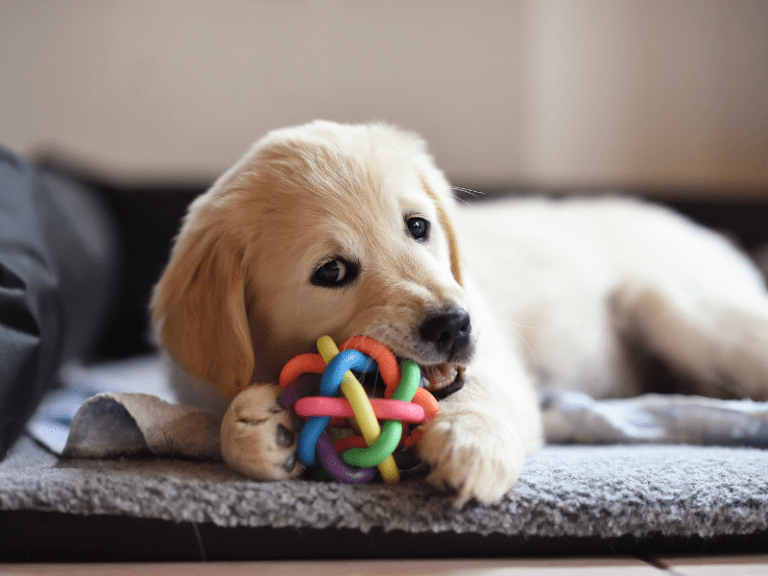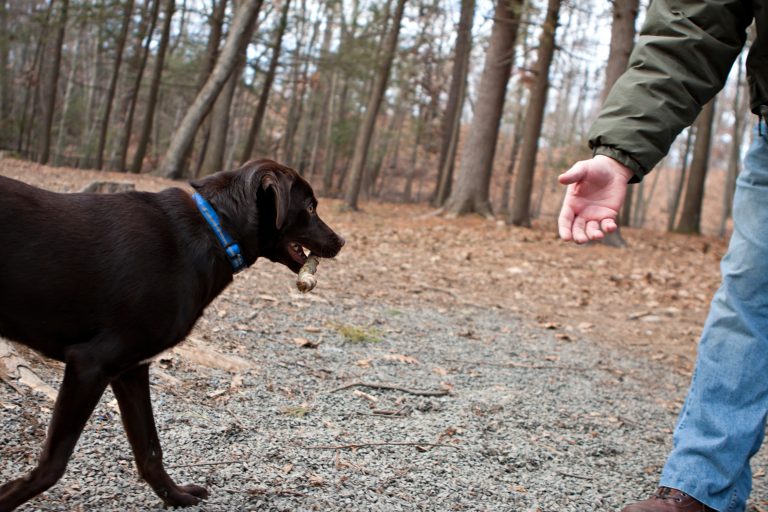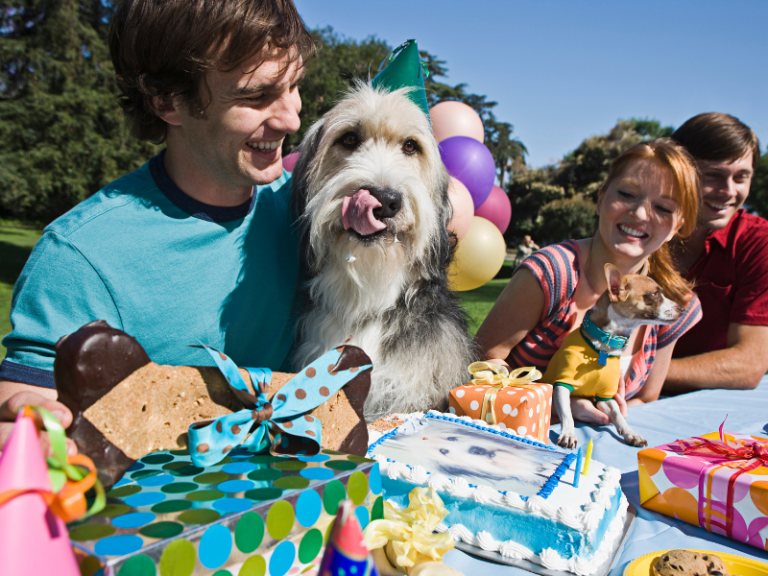Unleashing the Power of Border Collies: Discovering Their Natural Herding Instincts
FULL DISCLOSURE: The links I share in this course ARE my affiliate links. This means I earn a commission, at no extra cost to you. In fact, sometimes you’ll get a discount or free credits just FOR using my link. 🙂
Do you struggle with your Border Collie's obsessive behavior? Don't worry, you're not alone! By learning to identify the underlying causes, such as anxiety or boredom, and providing the right kind of mental and physical stimulation, you can help your furry friend overcome this behavior and live their best life. With the right strategies and a little bit of patience, you and your Border Collie can build a strong and lasting bond.
Understanding Obsessive Behavior in Border Collies
Welcome to the exciting world of Border Collies! These dogs are known for their intelligence, loyalty, and boundless energy.
As a Border Collie owner, you're probably already familiar with their unique personality and behavior. However, one trait that can be a challenge for some owners is obsessive behavior. It can be concerning when your furry friend becomes overly attached and follows you around everywhere you go, even into the bathroom!
The good news is that there are ways to help your Border Collie overcome this behavior.
Understanding Your Border Collie's Personality and Behavior

Before we jump into the nitty-gritty, let's explore what's driving your furry friend's obsessive behavior. Just like how Border Collies have a natural herding instinct, your pup's behavior may stem from anxiety, boredom, or a lack of mental and physical stimulation. But don't worry, once you identify the root cause, you'll be able to unleash the secret to help your four-legged buddy live their best life yet!
Observing Body Language and Cues
Wanna know what's really going on in your furry pal's mind? Watch their body language, my friend! Those expressive Border Collies will tell you everything you need to know with their posture, facial expressions, and vocalizations. Whether they're feeling anxious, ecstatic, or even under the weather, their body language can give you a clue. So, pay attention, take notes, and unlock the secret to being the best pet parent you can be!
Signs of Anxiety
If your Border Collie is feeling anxious, they may exhibit signs such as:
- Pacing or Restlessness: An anxious Border Collie may pace back and forth or appear restless, unable to settle down.
- Panting or Heavy Breathing: An anxious Border Collie may breathe rapidly or pant excessively, even if they haven't been exercising.
- Excessive Barking or Whining: An anxious Border Collie may bark or whine more than usual, often without an obvious cause.
- Destructive Behavior: An anxious Border Collie may chew on furniture, dig holes in the yard, or engage in other destructive behaviors.
- Aggression: An anxious Border Collie may become aggressive towards people or other animals, especially if they feel threatened or cornered.
- Avoidance: An anxious Border Collie may try to avoid certain situations or places, such as loud noises or crowded areas.
- Trembling or Shaking: An anxious Border Collie may tremble or shake, especially in response to a stressful situation.
Signs of Happiness and Relaxation
If your border collie is feeling happy and relaxed, they may exhibit the following signs:
- A Loose and Wiggly Body: A happy and relaxed Border Collie will often have a loose and wiggly body posture, with a wagging tail and relaxed facial expressions.
- Playfulness: A happy Border Collie may engage in playful behavior, such as play-bowing or fetching a ball.
- Contentedness: A relaxed Border Collie may appear content and satisfied, with a peaceful expression and a tendency to lay down and rest.
- Affection: A happy Border Collie may seek out affection from their owner, such as nuzzling or licking.
- Eager Appetite: A happy and relaxed Border Collie will often have a good appetite and may eagerly eat their food or treats.
- Calm Demeanor: A relaxed Border Collie will have a calm demeanor, with slow, steady breathing and a lack of nervous or anxious behaviors.
Observing Interactions with the Environment and Others

In addition to body language, it's important to observe how your dog interacts with their environment and other people and animals. For example, you may notice that your Border Collie becomes over excited around other dogs, or that they become nervous in new situations.
Example
Let's say you have a Border Collie named Max who exhibits obsessive behavior, following you everywhere you go and becoming anxious and restless when separated from you. After observing his behavior, you begin to notice that Max is highly attuned to your movements and behavior, and seems to have a strong desire to control your actions.
By understanding Max's personality and behavior, you can begin to address his obsessive behavior in a way that is tailored to his unique needs. For example, you may try the following strategies:
- Provide alternative activities: Border Collies are highly intelligent dogs that need to be mentally stimulated. You may provide Max with alternative activities to keep his mind occupied, such as puzzle toys or training sessions, so he is less focused on following you around.
- Encourage independence: You may work with Max to encourage him to be more independent and less reliant on you for constant attention. This could include teaching him to stay in one place, like his bed, while you move around the house.
- Reward calm behavior: When Max exhibits calm behavior or independence, you can reward him with treats, affection, or playtime. This will encourage him to repeat those behaviors in the future.
- Professional help: In some cases, professional help from a dog behaviorist or trainer may be necessary to address Max's obsessive behavior.
By understanding Max's unique personality and behavior, you can tailor your approach to his needs and work to alleviate his anxiety and obsessive behavior. With patience and consistency, you can help Max lead a happy and healthy life as a Border Collie.
Addressing the Underlying Causes of Obsessive Behavior

If your Border Collie is displaying obsessive behavior, it's important to address the underlying causes in order to help them overcome the behavior. There are several potential causes of obsessive behavior, including anxiety, boredom, and herding instincts.
Identifying potential triggers or stressors
To begin, it's important to identify any potential triggers or stressors that may be causing your dog's behavior. This could be anything from changes in routine or environment to an underlying medical issue. Once you've identified potential triggers, you can work to address them and provide your dog with the care and support they need.
Some potential triggers or stressors may be:
- Separation: Border Collies are known for their loyalty and attachment to their owners, and may become anxious when left alone for long periods of time.
- Loud Noises: Loud noises such as thunderstorms, fireworks, or even vacuum cleaners can be frightening for Border Collies and may trigger anxiety or stress.
- Lack of Exercise: Border Collies are highly active dogs that require a lot of exercise and mental stimulation. A lack of exercise or activity can lead to boredom and anxiety.
- Changes in Routine: Border Collies thrive on routine and structure, and may become anxious or stressed when their routine is disrupted.
- New Situations: Border Collies can be sensitive to new situations or places, and may become anxious or stressed when faced with unfamiliar surroundings or people.
- Crowds or Large Groups: Border Collies are highly attuned to their environment and may become overwhelmed in crowded or busy areas.
- Illness or Pain: Physical discomfort or pain can cause anxiety or stress in Border Collies, just as it would in humans.
Tips for addressing anxiety
If your Border Collie is experiencing anxiety, there are several techniques that can be helpful. For example, you could try providing a calming environment with soft lighting and calming music, or using natural remedies such as lavender or chamomile to promote relaxation.
Additionally, regular exercise and mental stimulation can help to reduce anxiety and provide a healthy outlet for your dog's energy.
Tips for addressing boredom

If your Border Collie is displaying obsessive behavior due to boredom, it's important to increase their physical and mental stimulation.
Border Collies are highly active dogs and require plenty of exercise and playtime to stay happy and healthy.
Consider taking your dog on longer walks, playing more games of fetch or tug-of-war, or introducing new training exercises to challenge them mentally.
Example
Let's say you have a Border Collie named Jack who exhibits obsessive behavior, following you everywhere you go and exhibiting signs of anxiety when separated from you. After observing his behavior and consulting with a veterinarian, you determine that Jack's obsessive behavior may be due to anxiety and boredom.
To address Jack's obsessive behavior, you may try several strategies:
- Provide mental and physical stimulation: Border Collies are highly intelligent dogs that require mental stimulation to stay engaged and happy. You may provide Jack with puzzle toys, interactive games, and agility exercises to challenge him mentally and physically.
- Establish boundaries and training: It's important to establish boundaries and train Jack to respect your space and independence. You may work on commands such as “stay” or “go to your bed” to encourage him to remain calm and independent.
- Gradual desensitization: If Jack exhibits separation anxiety, you may gradually desensitize him to being alone by leaving for short periods of time and gradually increasing the duration. You may also provide him with a special toy or treat to keep him occupied during your absence.
- Professional help: In severe cases, professional help from a dog behaviorist or trainer may be necessary to address Jack's obsessive behavior.
By implementing these strategies, you can help Jack overcome his obsessive behavior and anxiety, and provide him with the mental and physical stimulation he needs to be happy and healthy. With patience and consistency, you can help Jack live his best life as a Border Collie.
Positive Reinforcement Training Techniques
Positive reinforcement training is a powerful tool for shaping your Border Collie's behavior in a way that's kind and effective. This training method focuses on rewarding good behavior and ignoring or redirecting unwanted behavior.
Positive reinforcement is particularly effective with Border Collies, as they are highly motivated by rewards and enjoy pleasing their owners.
Techniques for teaching your dog new behaviors and reducing obsessive behavior
To start, identify the specific behavior you want to address and think about what kind of reward your Border Collie would enjoy. This could be a treat, a favorite toy, or even just verbal praise and affection. Once you have a reward in mind, you can begin to teach your dog a new behavior to replace the obsessive behavior.
For example, if your dog tends to follow you too closely, you could teach her to “stay” or “wait” in a designated spot. Use positive reinforcement to reward her for staying in that spot and gradually increase the distance between you and your dog. Over time, your Border Collie will learn that staying in one spot is more rewarding than following you everywhere.
Tips for consistency and persistence in training
Training your Border Collie is a rewarding experience, but it can also be challenging at times. One of the keys to success is consistency and persistence. By establishing a regular training routine and sticking to it, you can help your furry friend learn new behaviors and become a well-behaved and happy companion.
Remember, training takes time and patience, so don't get discouraged if progress is slow. Keep a positive attitude and celebrate every small victory, no matter how small it may seem.
Consistency and persistence are the building blocks of success, and with hard work and dedication, you and your Border Collie can achieve anything.
Increasing Exercise and Mental Stimulation
- Importance of physical and mental stimulation for Border Collies
- Suggestions for new activities and games to engage your dog
- Tips for maintaining a consistent exercise routine
Border Collies are highly active and intelligent dogs that require plenty of physical and mental stimulation to stay happy and healthy. Providing your furry friend with regular exercise and playtime is essential for preventing boredom and reducing obsessive behavior.
Provide Plenty of Physical Exercise

To start, consider taking your dog on longer walks or hikes to provide them with more opportunities to explore and burn off energy. You could also try playing more games of fetch, tug-of-war, or frisbee to engage your dog and keep them physically active.
Additionally, consider introducing your dog to new activities or sports, such as agility training or flyball, to challenge them mentally and keep them entertained.
Provide Plenty of Mental Stimulation
In addition to physical exercise, it's important to provide your Border Collie with plenty of mental stimulation. These dogs are highly intelligent and require regular training and mental challenges to stay engaged.
Try introducing new training exercises, such as teaching your dog new tricks or obedience commands, or providing puzzle toys that require them to problem-solve.
Maintaining Consistent Exercise Routine
Maintaining a consistent exercise routine is key to preventing boredom and reducing obsessive behavior. Try to schedule regular exercise and playtime sessions with your dog, and stick to a routine as much as possible. This will help to create a sense of predictability and structure for your dog, which can be comforting and reassuring.
Working with Professionals
If you're struggling with your Border Collie's obsessive behavior, it may be beneficial to seek the help of a professional. Working with veterinarians, dog trainers, and behaviorists can provide you with the guidance and support you need to address your dog's behavior and improve their quality of life.
Benefits of working with veterinarians, dog trainers, and behaviorists
Veterinarians can help to identify any underlying medical issues that may be contributing to your dog's behavior. They can also provide advice on managing anxiety or stress, and may be able to recommend natural remedies or medications to help your dog stay calm and relaxed.
Dog trainers can provide guidance on positive reinforcement training techniques and help you develop a personalized training plan to address your dog's behavior. They can also provide you with advice on new activities or games to engage your dog and keep them mentally stimulated.
Behaviorists are specialists in animal behavior and can provide more advanced training and treatment options for dogs with more severe behavioral issues. They can work with you to identify the root cause of your dog's behavior and develop a comprehensive treatment plan to help them overcome their issues.
Resources for finding professional help
If you're interested in seeking professional help, there are several resources available to you. Your veterinarian may be able to recommend a qualified dog trainer or behaviorist in your area.
Additionally, there are many online resources, such as the Association of Professional Dog Trainers or the International Association of Animal Behavior Consultants, that can provide you with a list of certified professionals in your area.
Remember, seeking professional help is not a sign of weakness, but rather a proactive step in providing the best possible care for your furry friend. With the right support and guidance, you can help your Border Collie overcome obsessive behavior and live a happy, healthy life.
Helping Your Border Collie
Border Collies are amazing dogs with unique personalities and behaviors. As a responsible owner, it's important to understand their needs, provide them with adequate mental and physical stimulation, and address any issues that may arise.
By following the tips and strategies we've discussed, you can help your Border Collie lead a happy and healthy life, and build a strong and lasting bond with your furry friend.
So why not start implementing some of these tips today and see the positive changes in your dog's behavior? Your furry friend will thank you for it!
Remember, consistency and persistence are key, and with time, patience, and dedication, you and your Border Collie can achieve anything.





